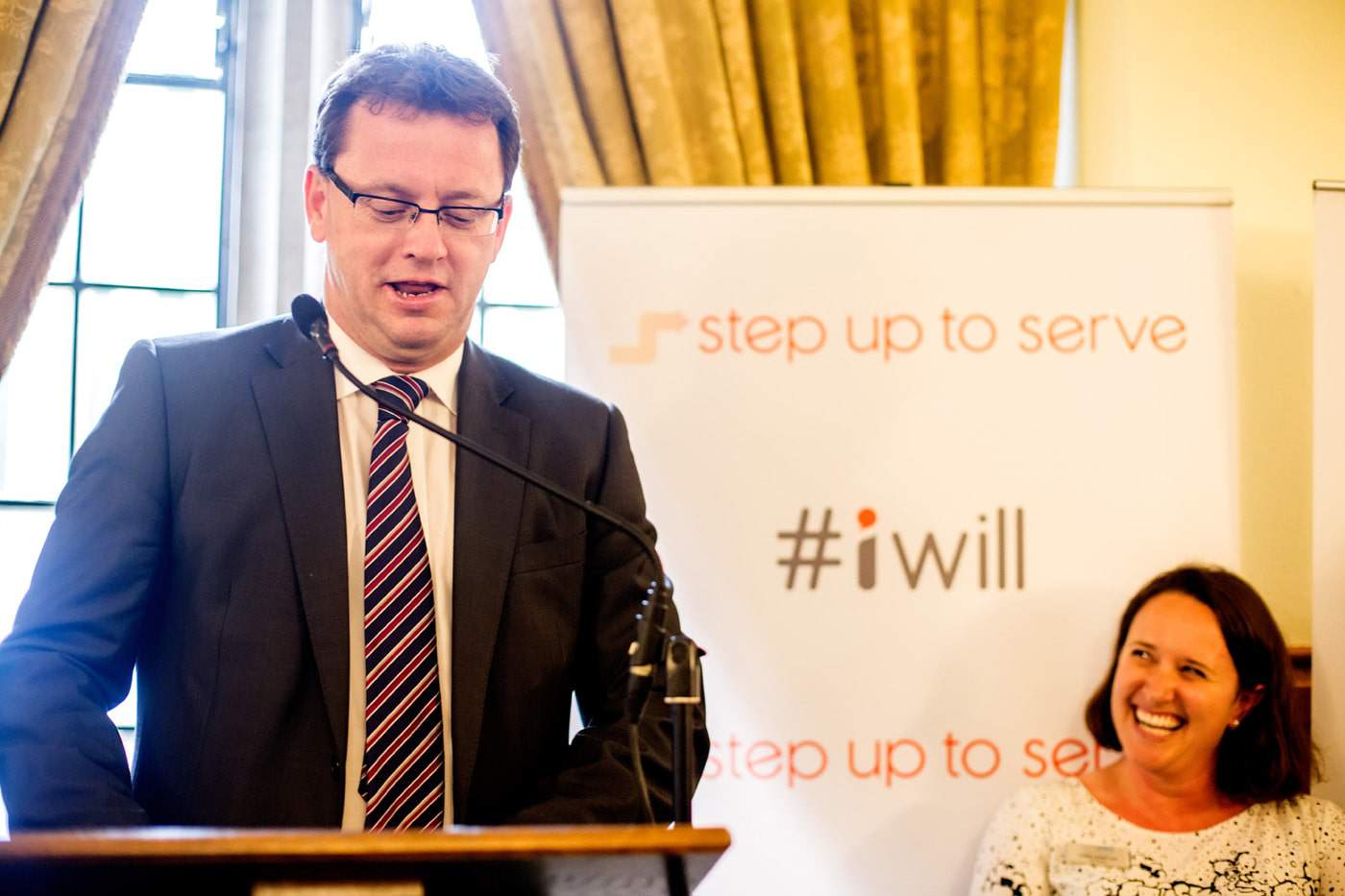On Monday afternoon, I attended the launch of the new Demos report ‘Service Nation 2020’, hosted by the Minister for Civil Society, Rob Wilson MP in the Houses of Parliament.
Working with Generation Change, Demos have written this report by reviewing new evidence and research that has been published since their 2009 report Service Nation. The report looks at how the government can achieve the #iwill campaign goal by 2020 and was written after interviewing 20 key stakeholders from different sectors. It brings together the strongest evidence to date that youth social action has a double benefit to young people and communities and reviews and makes recommendations on how these targets can be met.
The report clearly demonstrates the double benefit that youth social action has on communities and young people – on employment, building networks, mental health, confidence and community isolation – drawing on evidence from a broad range of studies. Crucially, it also brings together evidence of return on investment in youth social action. For example, the NCS evaluation in 2014 found that per pound of expenditure on their summer programme, there were £1.70-6.10 of benefits.
We’re particularly enthusiastic about the recommendations Demos put forward in the report. In particular, the report recommends that the Office for Civil Society should develop a cross – departmental national strategy for youth social action. This is crucial for ensuring young people’s social action journey begins at an early age, and that they have opportunities to further develop right up until the age of 25. In practice, a joined up approach would ensure that there are opportunities to take part in social action pre NCS (for 10-14 year olds) and post NCS – for school leavers and University students.
Their key recommendations made by the report to the Government are:
- Develop a comprehensive, cross-departmental five-year national strategy for youth social action, through the Office of Civil Society
- Establish an independent social action coordinating body to implement this strategy – coordinating a youth social action fund that would bring together contributions from public and private sectors, administering competitive strategic grants, and supporting central Government departments and local authorities to encourage youth social action to be incorporated in more policy areas
- Embeds social action into schools, through a social action ‘GiveBacc’ to run alongside the English Baccalaureate or encouraging students to take part in addition to their work experience placements.
- Champion the development of full-time social action “service year” placements as an alternative pathway for school-leavers, which could also potentially count towards University credit
- Supports the creation of a quality mark for social action provision, which would formally recognise organisations focused on the important task of measuring impact
These overlap strongly with Generation Change’s social action manifesto, and we’re excited to see how this report will help build the case for strategic investment and support from government into the sector.
Commenting on the findings, the report’s author and Head of Citizenship at Demos, Jonathan Birdwell, said:
“It is incredibly encouraging to see the enormous level of appetite amongst young people to give back to their communities, and we have seen some great support for youth social action over the past Parliamentary term from all sides of politics. But, as we edge ever-closer to 2020, it is becoming increasingly clear that the target of engaging 60 per cent of youth in high quality social action projects will simply never be realised without decisive support from this Government. In particular, it is essential that we see the development of a cross-departmental national strategy and an independent coordination body to implement it, if we want to bring long-term sustainability to a sector that offers such extensive benefits to individuals and society as a whole.”
Adam O’Boyle, Co-Chair of Generation Change, said:
“This Government has made a commitment to significantly grow the number of young people taking part in social action by 2020. We have seen some positive steps towards this, but a lot more investment is needed in order to take advantage of the unprecedented consensus and support in the voluntary, education and business sectors for achieving this goal. Generation Change is calling on the government to create more opportunities for young people to volunteer before and after they take part in National Citizen Service, for example by creating a ‘GiveBacc’ for schools and by creating a new ‘service year’ status for young people doing full-time ‘gap-year’ style volunteering programmes.”
Find out more about Student Hubs’ pledge to youth social action here »

